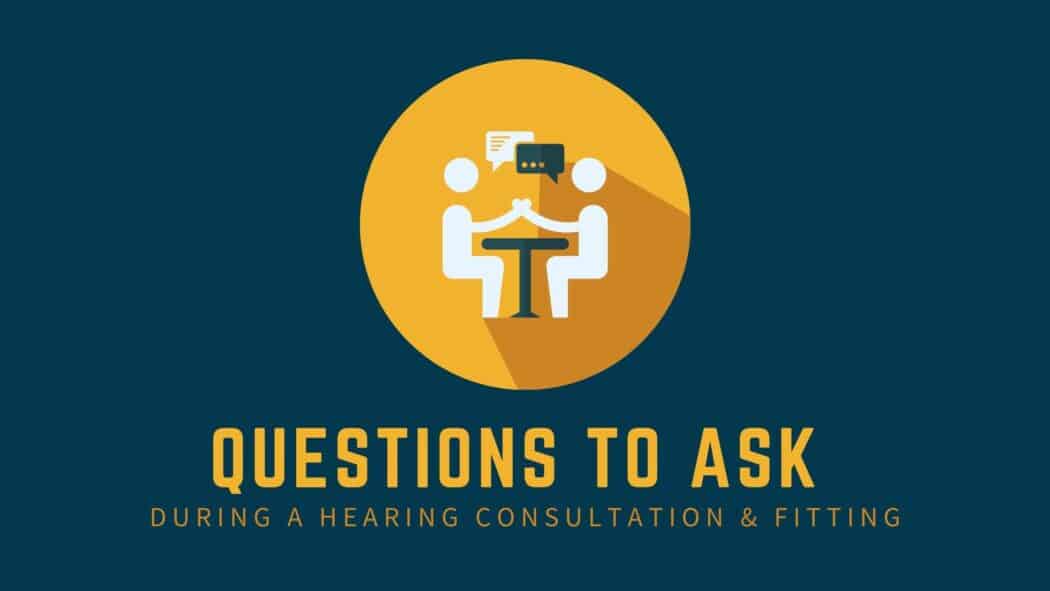Deciding to confront hearing loss is a brave step towards finding a better hearing experience. People who choose to treat hearing loss have higher outcomes of improved relationships, more ease in communicating, and a decreased risk of isolation and dementia. And yet, many people do not treat their hearing loss for years after it makes itself known. According to the Hearing Loss Association of America, it takes people about seven years, on average, after they suspect hearing loss to decide to intervene.
Scheduling a hearing consultation and fitting can be an intimidating step, and it helps to do a little pre-appointment research to calm your nerves and ensure that you are well-prepared for your session.
What type of hearing loss do I have?
There are a myriad of ways that hearing loss presents and even more ways we can treat hearing loss. Here are the three fundamental types of hearing loss:
- Sensorineural hearing loss happens when the delicate cells of the inner ear are damaged. These cells are integral in receiving the sound information captured by the ear that is then sent to the brain via the auditory nerve. Damage can occur from noise exposure or simply the very natural process of aging. Once these cells are damaged, they do not regenerate and this type of hearing loss is most often irreversible.
- Conductive hearing loss is diagnosed when there is an impediment to sound information reaching the eardrum or inner ear. This is often a blockage resulting from ear wax or fluid. Sometimes, an ear infection may temporarily impact hearing in this way. Usually, once the obstruction is removed normal hearing will return.
- Mixed hearing loss is exactly what it sounds like: occurring when both sensorineural and conductive hearing loss is present.
What caused my hearing loss?
You’ll also want to investigate whether you have age-related or noise-induced hearing loss. If it is the latter, you might want to invest in more effective hearing protection if you are still engaging in the work, behavior or hobby that has led to hearing loss to prevent further damage.
Do I have hearing loss in both ears?
While it might seem thrifty to only invest in one hearing aid, you might be losing out on an innate and useful ability. Because our ears are ingeniously designed to work together to receive sound in order to discern location, getting a hearing aid for each ear that has hearing loss will help you to retain this function. Using binaural cues, your ears measure the sound difference and the brain calculates the location. This ability is rarely done consciously, it’s just one of the marvelous things our bodies and brains evolved to do. It’s how we do things like spot a cawing bird on a hike or know what direction the honking car horn is coming from.
Will this hearing aid work with my technical abilities?
During your consultation, your audiologist will go over your medical history. At that time, they might inquire about your technical capabilities, know-how and interest. They’re not surveying you out of personal curiosity, it’s incredibly helpful information when matching you with the best hearing aid.
Like so much of our world, the computer age has influenced the hearing aid industry. As they say, “there’s an app for that!” Some hearing aids can be managed through an app on your smartphone that allows you to control settings and programs with the touch of a button. If you’re a tech-savvy early adopter, your audiologist will point you in the direction of these bells and whistles. However, if you’re more of an analog, old-school person, your audiologist will avoid giving you technology that doesn’t interest you in favor of a model that you can fully operate.
We are here to help
Although this article can give you some additional areas to look into, you probably can’t anticipate every issue that arises based upon your unique lifestyle, history and pattern of hearing loss. If you have questions about hearing loss and possible solutions, there is no better place to ask those questions than with us!
Audiologists are highly trained medical professionals who specialize in hearing loss and other auditory and balance disorders. We have gone through rigorous training and encounter even more learning as we gain experience through practicing. Long story short: we’ve probably encountered your question before and can guide you through an answer that makes you feel more knowledgeable and secure.
Above all, we care about delivering exemplary care and pairing you with the best possible solution so that your hearing experience is greatly improved. If you have a question or need clarification around a topic, do ask! Your hearing consultation and fitting will be more effective if you give voice to your concerns.

